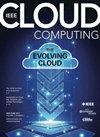SLAM: SLO-Aware Memory Optimization for Serverless Applications
Q1 Computer Science
引用次数: 7
Abstract
Serverless computing paradigm has become more ingrained into the industry, as it offers a cheap alternative for application development and deployment. This new paradigm has also created new kinds of problems for the developer, who needs to tune memory configurations for balancing cost and performance. Many researchers have addressed the issue of minimizing cost and meeting Service Level Objective (SLO) requirements for a single FaaS function, but there has been a gap for solving the same problem for an application consisting of many FaaS functions, creating complex application workflows.In this work, we designed a tool called SLAM to address the issue. SLAM uses distributed tracing to detect the relationship among the FaaS functions within a serverless application. By modeling each of them, it estimates the execution time for the application at different memory configurations. Using these estimations, SLAM determines the optimal memory configuration for the given serverless application based on the specified SLO requirements and user-specified objectives (minimum cost or minimum execution time). We demonstrate the functionality of SLAM on AWS Lambda by testing on four applications. Our results show that the suggested memory configurations guarantee that more than 95% of requests are completed within the predefined SLOs.SLAM:无服务器应用程序的慢速感知内存优化
无服务器计算范式已经在业界根深蒂固,因为它为应用程序开发和部署提供了一种廉价的替代方案。这种新范例也给开发人员带来了新的问题,他们需要调优内存配置以平衡成本和性能。许多研究人员已经解决了单个FaaS功能的成本最小化和满足服务水平目标(Service Level Objective, SLO)要求的问题,但是对于由许多FaaS功能组成的应用程序来说,解决同样的问题仍然存在差距,因为这会创建复杂的应用程序工作流。在这项工作中,我们设计了一个叫做SLAM的工具来解决这个问题。SLAM使用分布式跟踪来检测无服务器应用程序中FaaS功能之间的关系。通过对它们进行建模,它可以估计应用程序在不同内存配置下的执行时间。使用这些估计,SLAM根据指定的SLO需求和用户指定的目标(最小成本或最小执行时间)确定给定无服务器应用程序的最佳内存配置。我们通过在四个应用程序上进行测试来演示SLAM在AWS Lambda上的功能。我们的结果表明,建议的内存配置保证95%以上的请求在预定义的slo内完成。
本文章由计算机程序翻译,如有差异,请以英文原文为准。
求助全文
约1分钟内获得全文
求助全文
来源期刊

IEEE Cloud Computing
Computer Science-Computer Networks and Communications
CiteScore
11.20
自引率
0.00%
发文量
0
期刊介绍:
Cessation.
IEEE Cloud Computing is committed to the timely publication of peer-reviewed articles that provide innovative research ideas, applications results, and case studies in all areas of cloud computing. Topics relating to novel theory, algorithms, performance analyses and applications of techniques are covered. More specifically: Cloud software, Cloud security, Trade-offs between privacy and utility of cloud, Cloud in the business environment, Cloud economics, Cloud governance, Migrating to the cloud, Cloud standards, Development tools, Backup and recovery, Interoperability, Applications management, Data analytics, Communications protocols, Mobile cloud, Private clouds, Liability issues for data loss on clouds, Data integration, Big data, Cloud education, Cloud skill sets, Cloud energy consumption, The architecture of cloud computing, Applications in commerce, education, and industry, Infrastructure as a Service (IaaS), Platform as a Service (PaaS), Software as a Service (SaaS), Business Process as a Service (BPaaS)
 求助内容:
求助内容: 应助结果提醒方式:
应助结果提醒方式:


